Evaluating Country Programmes - OECD Online Bookshop
Evaluating Country Programmes - OECD Online Bookshop
Evaluating Country Programmes - OECD Online Bookshop
Create successful ePaper yourself
Turn your PDF publications into a flip-book with our unique Google optimized e-Paper software.
Issues for <strong>Country</strong> Evaluation: The Case of the EU <strong>Country</strong> Programme in Russia<br />
A desire to promote integration between Russia and Europe has been made<br />
explicitly by Moscow: “I believe a decisive step has been made towards renewing<br />
the unity of our continent. This Agreement is a document setting out precisely and<br />
clearly the conditions and stages of Russia’s return to economic Europe, as an equal<br />
partner”, President Eltsin said at the signature of the PCA.<br />
Along with the consolidation of the PCA, which has become a key reference for<br />
the Tacis country programme, a number of other factors should be considered in<br />
order to have complete understanding of the political framework, which characterises<br />
the very singular EU-Russia relationship:<br />
– EU already has a long border in common with north-western Russia.<br />
– This common border will increase with the entry of the Baltic countries in the EU.<br />
– With the extension of the EU to include these countries, trade flows and transfrontier<br />
relationships between Russia and EU will be greatly strengthened.<br />
Such relationships are going to become vital not only for trade and exchange<br />
rates, but also in relation to certain key stability and security factors, including environment<br />
risk, peace and nuclear safety, migration control, and crime and delinquency<br />
repression.<br />
A number of initiatives have already been launched to cope with these new<br />
perspectives, such as:<br />
– The EU Northern Dimension, in which environment, infrastructure and other<br />
issues specific to the northern sub-region of EU and its neighbouring countries<br />
are dealt with.<br />
– The Trans-European Network (TEN), or transport corridors.<br />
In this context, Tacis should become a key element of the global partnership<br />
and long-term integration process between EU and Russia. From now on, its work<br />
should increasingly focus on the establishment of inter-institutional networks<br />
between the two partners, as well as between private enterprises, central and local<br />
government bodies, scientific and training institutions, civil society groups and<br />
NGOs. Special attention should be given to joint projects, especially in the domain<br />
of transport infrastructure, customs, trade standards, and financial regulations. This<br />
new emphasis should reduce the traditional technical assistance (TA) component<br />
of Tacis, since the transfer of know-how should occur at horizontal level in an<br />
attempt to solve common problems.<br />
A CP evaluation should highlight the coherence between development cooperation<br />
and global partnership so that all of the goals and the results of a CP can<br />
be globally understood and judged in both donor and recipient countries.<br />
<strong>OECD</strong> 1999<br />
185






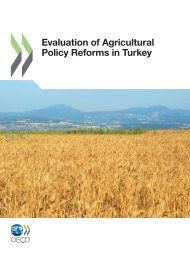
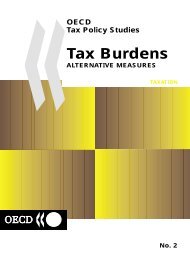
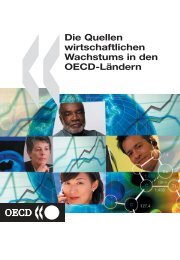
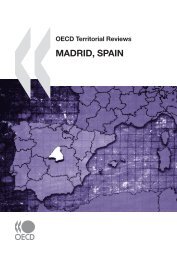


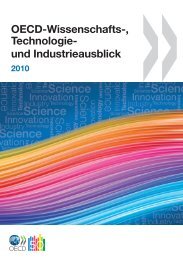
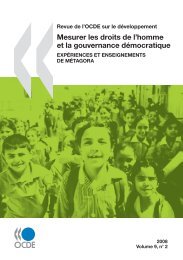
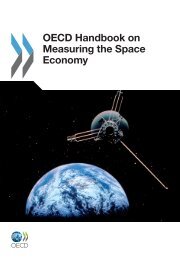
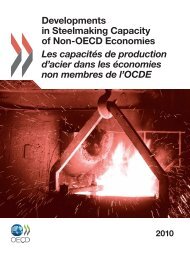

![CQE=U]^\]Z: KAZAKHSTAN - OECD Online Bookshop](https://img.yumpu.com/3915768/1/190x253/cqeuz-kazakhstan-oecd-online-bookshop.jpg?quality=85)